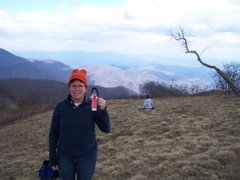School's Out(doors): Place-based Education (PBE) Responds to COVID-19 and Beyond
New Resource! School's Out(doors): Place-based Education Responds to COVID-19 and Beyond is designed for leaders who seek healthy learning spaces for students, as well as equity, social-emotional development, and mutually-beneficial relationships with local communities.
Power spots are a simple and profound way to get started.
Get outside and look around. This simple act has launched many great place-based education (PBE) projects. When Rob Hanson’s 6th graders get outside, they often head for their “power spot,” a natural location they selected for frequent visits to observe and reflect.
Some of the most powerful learning Rob has seen comes from students journaling about the prompt “What Nature Teaches Me.” [14] Rob’s student Kyler recently observed: “Grass teaches me to be flexible... when the wind hits grass it goes with the flow. The grass is open to new ideas and can adapt to new climates. I should adapt to quarantine.”
Burning purple flower,The beginning of a new life. Long flowering stems,
Signs of spring. Colors of the world, Heart of the eye.
What am I?
- by Asher, 6th grade, VT
PBE works by starting small but going deep. After iterative sessions of increasingly detailed observation and nature connection, Rob’s students collaborate to revise and polish their power spot writing. They combine and refine their best work as a class to create an original poem that they perform for the community. These “speak choruses” integrate writing, literature, science, music, and teamwork in a way that, in Rob’s words, “allows the learning from individual students to become everyone’s wisdom.”
PBE integrates diverse content areas and learning modes. Rob’s students use their power spots for scientific study and inference. They write poetry and create and perform art. Students explored the connection between social issues and place in Jacqueline Woodson’s Brown Girl Dreaming. The resulting speak chorus incorporated their words and call to action with those of Woodson, Langston Hughes, Martin Luther King Jr., and Malcolm X. PBE also connects students to their community. Rob partnered with the Marsh-Billings-Rockefeller National Historical Park to create several new PBE programs, including Park Research Projects where rangers and teachers support students in deep exploration of essential questions about local habitats.
According to Rob, PBE is effective because “It develops growth mindsets, grit, and the neurological pathways responsible for enduring understanding and deep caring. It’s the diversity and richness of outside places in particular where we find the grist for powerful writing, science, meaningful mathematics, and living history. Placed-based learning helps students tie in, find their passions, and follow those. Their deep engagement drives growth, meaning, and, often, joy.”
“The theme of persistence and flexibility comes up over and over” in his students’ writing, says Rob. As we struggle with schooling in the midst of a pandemic, resilience is just what is needed. Rob wryly notes that this virus likes being inside, and so he encourages teachers and students to get outside, breathe deep, and take a good look around.



No comments:
Post a Comment